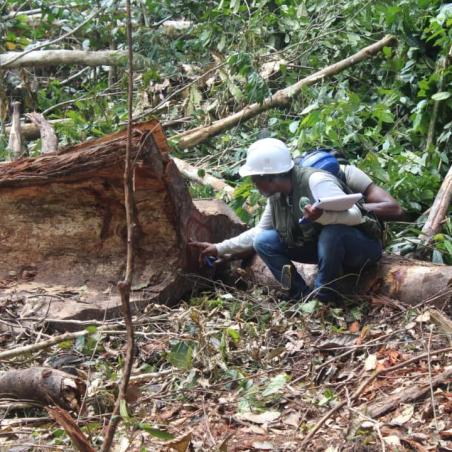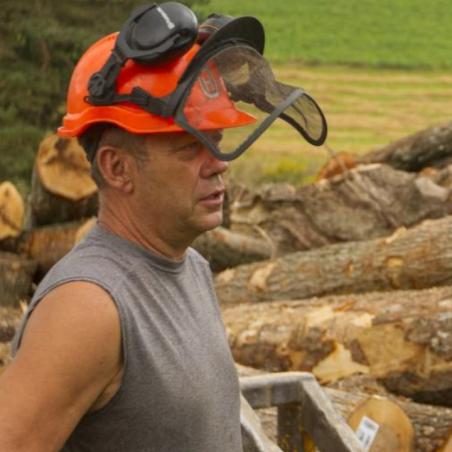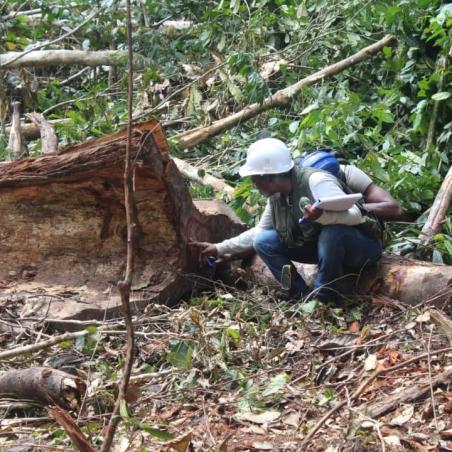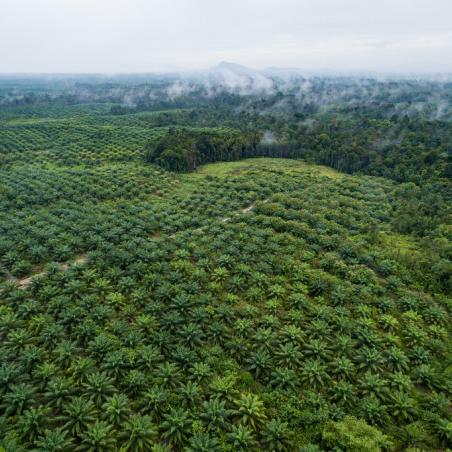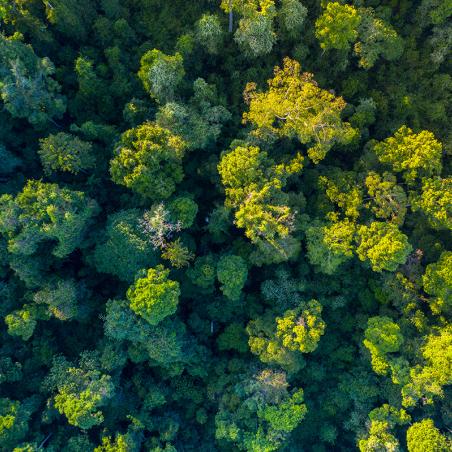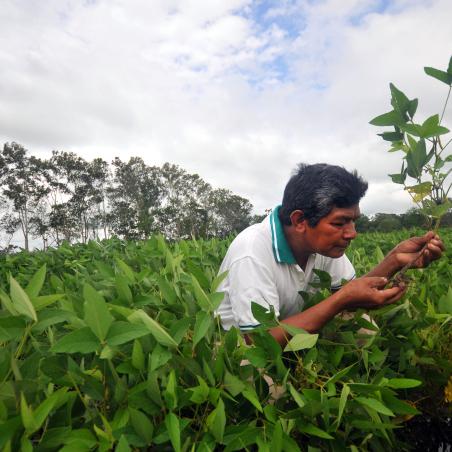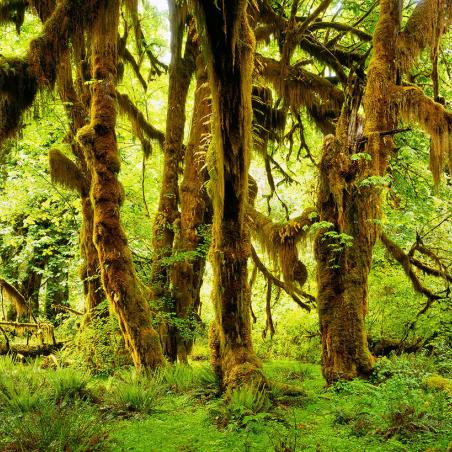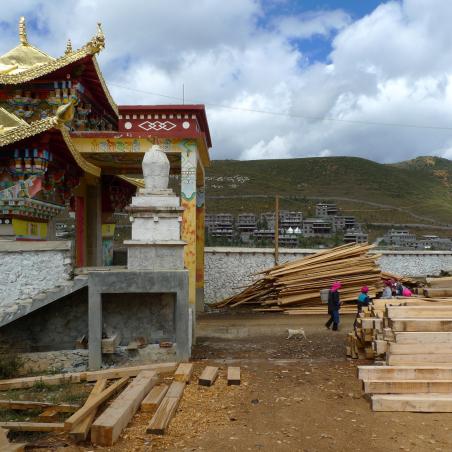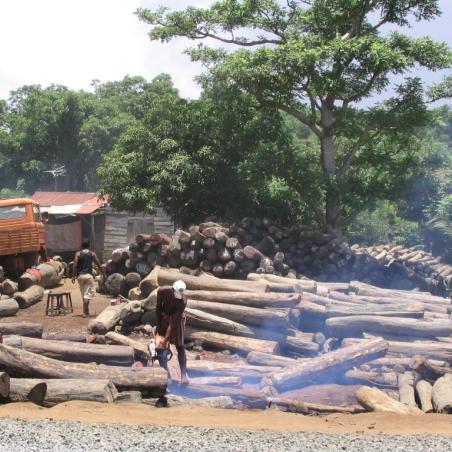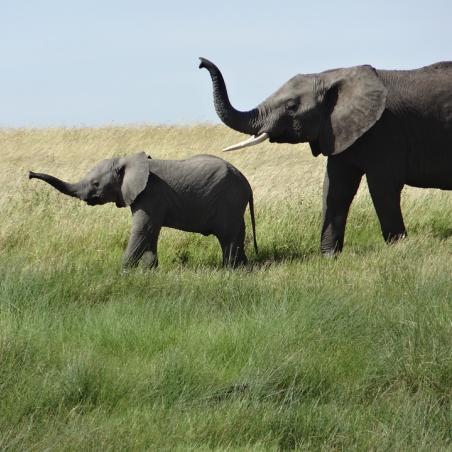News & Blogs
08/11/2022
Quatre façons de renforcer l'observation indépendante des forêts dans le bassin du Congo
Type:
Blog Post
L’observation indépendante des forêts (OIF) a joué un rôle important dans l’amélioration de la gouvernance forestière et dans la lutte contre l’exploitation forestière illégale au cours des 20 dernières années, en conduisant, par exemple, à l’annulation de titres forestiers illégaux et l’adoption de nouveaux arrêtés ministériels améliorant la gouvernance forestière.
06/17/2022
How Tracking Timber Helps Prevent Illegal Logging and Deforestation
Type:
Blog Post
In some tropical countries, illegal logging accounts for the majority of forest clearing, threatening economies, livelihoods, ecosystems and contributing to climate change. To combat illegal logging and close markets to illegally sourced timber, tropical timber-producing countries around the world are developing national timber tracking systems.
06/14/2022
Four Ways to Strengthen Independent Forest Monitoring in the Congo Basin
Type:
Blog Post
Independent forest monitoring (IFM) has played an important role in improving forest governance and tackling illegal logging in the past 20 years, for example by leading to the withdrawal of illegal forest titles and adoption of new ministerial orders improving forest governance.
04/05/2022
How a New EU Regulation Can Reduce Deforestation Globally
Type:
Blog Post
The European Union is one of the largest importers of commodities linked to deforestation, with more than 60% of the world’s cocoa and about 50% of coffee going to Europe alone in 2016. These are two of seven agricultural commodities that resulted in over a quarter of global tree cover loss from 2001 to 2015.
08/07/2021
Open Timber Portal and SPOTT: Raising the bar for corporate disclosure in Gabon
Type:
Blog Post
In April 2021, the World Resources Institute’s Open Timber Portal (OTP) launched its first transparency rankings of forestry producers in Gabon, aimed at incentivising companies to disclose evidence that they are operating in compliance with forest management legislation.
12/16/2020
China Can Save Forests While Strengthening Its Economic Resilience
Type:
Blog Post
A recent study by Chinese and international experts argues that China’s leaders are recognizing the importance of greening the country’s commodity value chains. As China reassesses the vulnerability and risks of its global value chains due to the COVID-19 pandemic and considers how to build back its economy with greater resilience and sustainability, the political moment is right to make this shift.
11/06/2018
DNA Testing Can Save Trees from Illegal Logging – and You Can Help
Type:
Blog Post
By his own admission in a 2015 criminal plea agreement, Washington state sawmill owner Harold Clause Kupers suspected he had been buying logs illegally harvested from Gifford Pinchot National Forest. Besides his confession, DNA from the illegal timber—not from Kupers—implicated him in the crime.
04/17/2018
2 Ways for China to Play a Bigger Role in Protecting Global Forests
Type:
Blog Post
In 2018, China wrote the concepts of "ecological civilization" and "a community of shared future for mankind" into its Constitution. The new concepts signal China's prioritization of the environment in its policy agenda and willingness to engage cooperatively in global affairs.
03/14/2018
With US Out of TPP, So Are Measures to Curb Illegal Logging
Type:
Blog Post
President Trump may have withdrawn the United States from the Trans-Pacific Partnership (TPP), but the 11 remaining countries renamed and re-signed the trade agreement last week. The new pact comes with a few changes, one of which could fuel the illegal logging trade.
07/10/2017
2 Birds, 1 Stone: Fighting Illegal Logging and Wildlife Poaching with Technology
Type:
Blog Post
Wildlife trafficking is a growing epidemic. A market for exotic birds and rare seafood delicacies is exploding in Latin America. In Southeast Asia, the rising trade in pangolins – the most trafficked animal on Earth – has driven the small mammals to the brink of extinction, with hunters now pursuing African pangolins to satiate the Asian market.
